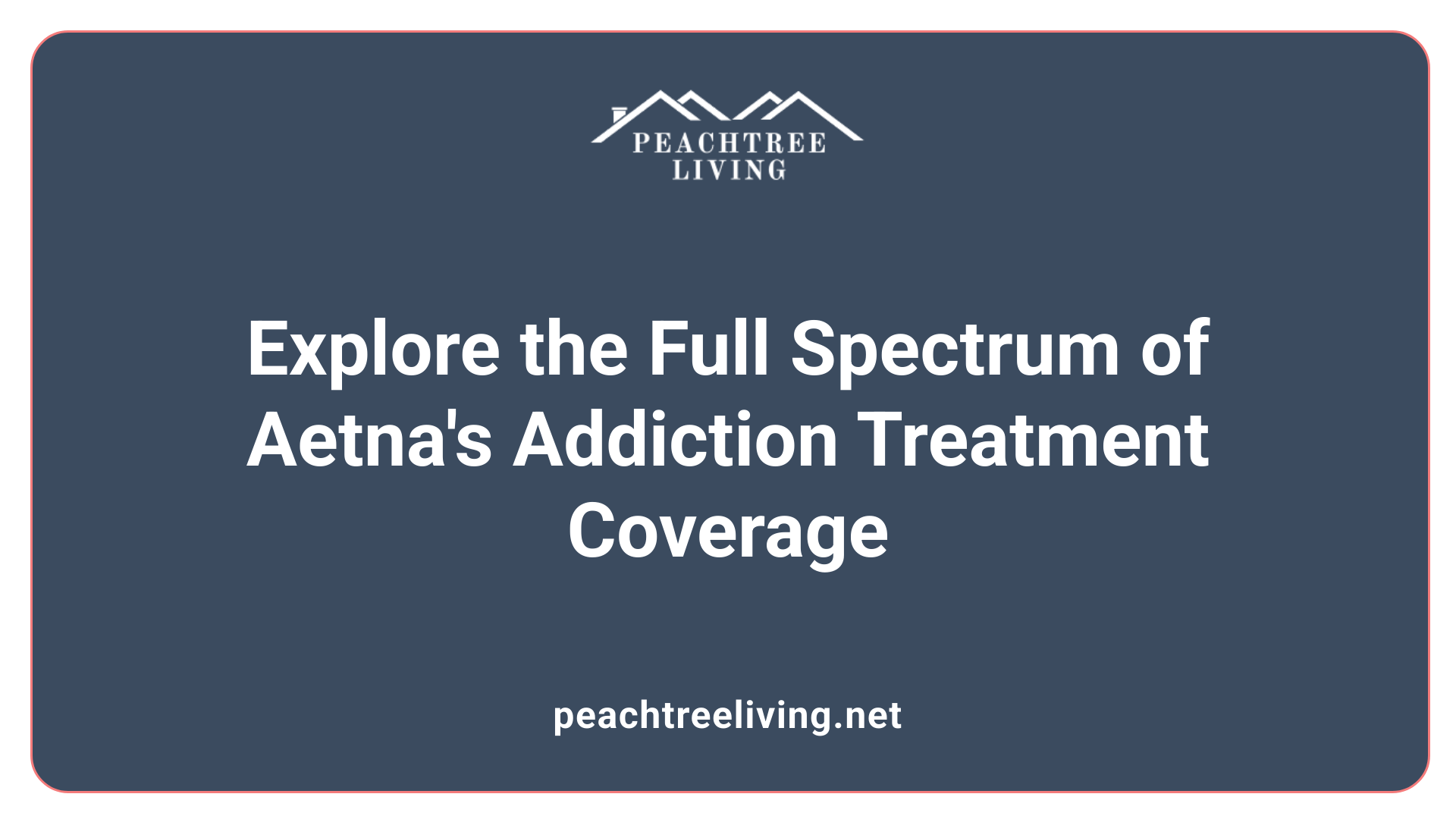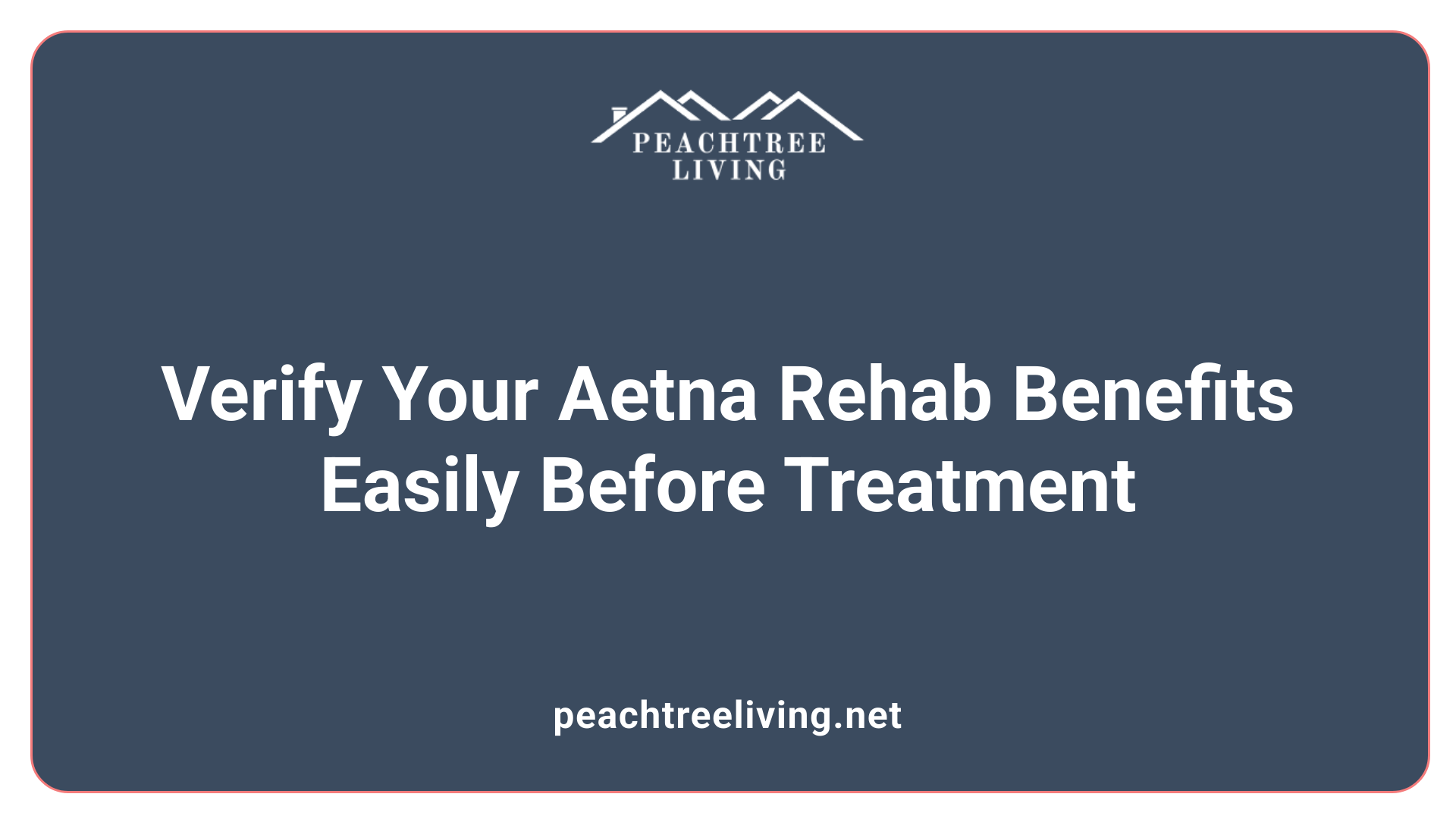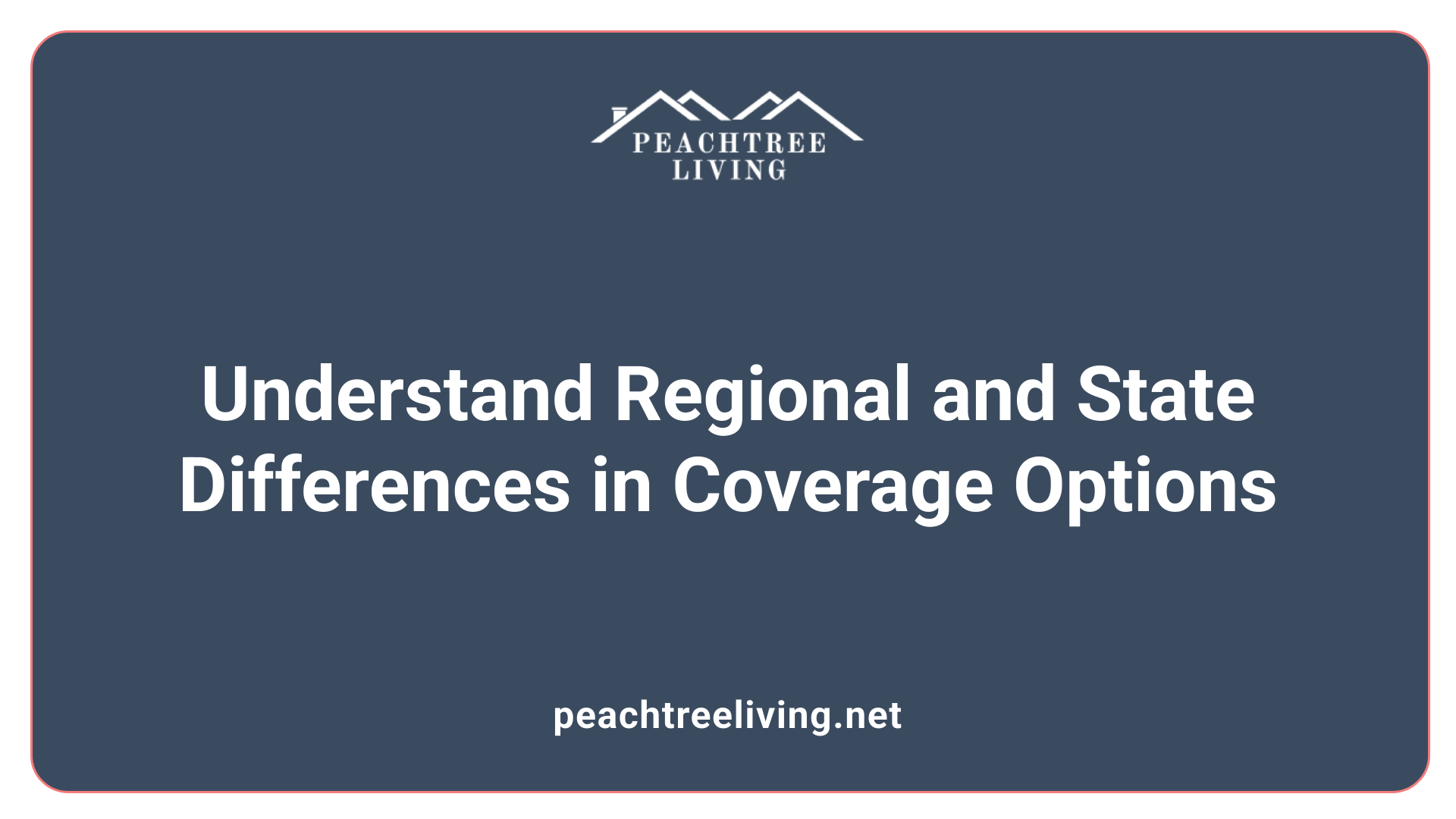Understanding Aetna’s Coverage for Addiction Treatment Services
Navigating the complexities of insurance coverage for rehab and addiction treatment can be confusing. Many individuals wonder if their Aetna health insurance plans include coverage for such services, what types of treatments are covered, and how to verify benefits. This article provides an in-depth overview of Aetna’s policies on rehab coverage, the range of services included, the process for utilization, and regional variations to help you make informed decisions about your recovery journey.
Coverage Scope for Rehab and Addiction Treatments

Does Aetna insurance cover rehab or addiction treatment?
Aetna insurance typically includes coverage for various addiction treatment services, making recovery more accessible for members. This coverage often encompasses outpatient and inpatient programs, detoxification services, partial hospitalization, intensive outpatient treatment (IOP), and ongoing aftercare programs designed to support sustained recovery.
However, the extent of coverage can significantly depend on the specific Aetna health plan a member holds, as well as whether the treatment provider is in-network with Aetna. Many programs and facilities, including American Addiction Centers (AAC), are in-network, which can help reduce out-of-pocket expenses for insured individuals.
Coverage for behavioral health interventions such as screening, brief intervention, and referral to treatment (SBIRT) is also generally available, especially in primary care settings, to help identify and address substance use issues early.
It is essential to note that certain treatments may require pre-certification or prior authorization to ensure coverage. This involves documentation of medical necessity, which is assessed case-by-case by Aetna.
Members should review their specific policies or contact Aetna directly through their member portal or customer service to confirm benefits. Clarifying coverage details before entering treatment helps prevent unexpected costs and ensures access to the full range of available services.
In summary, Aetna provides a broad spectrum of coverage options for addiction and substance use disorder treatments. By working with in-network providers and understanding individual plan benefits, members can access necessary care with financial support from their insurance plan.
Coverage dependences on plans and provider in-network status
The scope of coverage for addiction treatment relies heavily on whether the provider is within Aetna’s approved network. In-network facilities and clinicians usually offer more comprehensive benefits, lower co-pays, and reduced out-of-pocket costs.
Members with out-of-network coverage may still access treatment, but benefits are often limited, and additional costs are likely. Therefore, verifying if a treatment center or provider is in-network prior to treatment is recommended.
Some plans also differentiate coverage quality and amount based on the type of plan held. For example, high-deductible plans might have higher out-of-pocket costs, while PPO or HMO plans may offer more extensive benefits for the same treatment.
To maximize coverage, members should consult their benefits summary, use Aetna’s online provider directory, or speak directly with a representative to confirm in-network status.
Coverage for detoxification, inpatient, outpatient, and aftercare programs
Aetna generally includes coverage for the full continuum of addiction care:
- Detoxification: Medical detox services are often covered, helping patients safely manage withdrawal symptoms.
- Inpatient or Residential Treatment: This intensive level of care is typically included, especially for severe cases requiring supervised, 24-hour medical attention.
- Partial Hospitalization Programs (PHP): These programs serve as a bridge between inpatient treatment and outpatient care, often covered by Aetna on a case-by-case basis.
- Intensive Outpatient Programs (IOP): Designed for individuals needing structured treatment without overnight stays, IOP is frequently covered.
- Outpatient Therapy and Aftercare: Ongoing counseling, therapy sessions, and alumni programs to support long-term recovery are usually included within coverage provisions.
Pre-certification may be required for some services, and coverage limits such as treatment duration and frequency can vary by individual plan.
Below is a summary table highlighting these coverage aspects:
| Treatment Type | Common Coverage Status | Additional Notes |
|---|---|---|
| Detoxification | Usually covered | May require medical necessity documentation |
| Inpatient/residential rehab | Frequently covered | Duration limits and pre-authorization may apply |
| Partial Hospitalization (PHP) | Often covered | Verification needed for facility approval |
| Intensive Outpatient (IOP) | Commonly covered | Coverage may depend on specific plan and provider |
| Aftercare programs | Usually included | Vital for sustained recovery; verify eligibility |
In conclusion, Aetna’s insurance plans are designed to provide support across all phases of addiction treatment. Members should verify their specific benefits and network participation to utilize these coverage options effectively.
Types of Rehab Services Covered by Aetna

What types of rehab services are covered by Aetna insurance?
Aetna provides coverage for a variety of addiction treatment services, aiming to support long-term recovery and mental health. Their coverage includes detoxification, inpatient and residential rehab programs, partial hospitalization programs (PHP), intensive outpatient programs (IOP), and ongoing aftercare or alumni support.
Detoxification services help patients safely manage withdrawal symptoms and are often covered as part of inpatient treatment plans. Inpatient or residential rehab offers intensive treatment in a live-in setting, with the length of stay tailored to individual needs. Partial hospitalization programs allow patients to receive treatment during the day while living at home, providing a balance of care and independence.
Intensive outpatient programs (IOP) are less restrictive and focus on individual therapy, group counseling, and other supportive services, enabling patients to continue daily responsibilities while engaging in treatment. Aftercare programs help maintain sobriety by providing ongoing support, counseling, and relapse prevention strategies.
Coverage specifics depend on the individual plan, including whether the services are provided at in-network or out-of-network facilities. In-network providers typically offer better coverage benefits and lower costs, so verifying provider status with Aetna is essential.
Beyond facility-based services, Aetna also covers screening and brief intervention programs, such as SBIRT (Screening, Brief Intervention, and Referral to Treatment), which help identify problematic substance use early and connect individuals to appropriate care.
Pre-assessment or pre-authorization may be necessary for certain treatments—particularly inpatient hospital stays and outpatient detoxification—to ensure coverage and streamline the process.
Overall, Aetna’s broad coverage aims to address various stages of addiction recovery, from initial detox to long-term relapse prevention, with the scope and details varying by plan and individual circumstances.
Verifying Your Aetna Rehab Benefits

How can I verify what rehab benefits are included in my Aetna insurance plan?
If you're seeking to use your Aetna insurance for addiction treatment, it’s essential to understand exactly what your plan covers. The most straightforward way to do this is by logging into your secure Aetna online account. Once logged in, you can access detailed information about your benefits, including coverage for detox, inpatient and outpatient rehab, counseling, and medication-assisted treatment.
In addition to online account access, healthcare providers and treatment centers can use Aetna's Eligibility and Benefits Inquiry tool. This electronic transaction allows providers to quickly verify your specific benefits, coverage limits, copayments, and any exclusions based on your individual plan.
Reviewing your plan documents—such as the Evidence of Coverage and the Summary of Benefits—is also crucial. These documents spell out exactly what treatments are covered, the duration of coverage, and any out-of-pocket costs you might incur.
It’s important to confirm coverage limits and restrictions, such as pre-certification or pre-authorization requirements for inpatient or outpatient treatments. Many plans require prior approval for certain services, especially hospital stays and detox programs.
If you need personalized assistance or additional clarification, contacting Aetna’s customer service directly is advisable. You can find the customer service phone number on the back of your insurance card or through your member portal. A customer service representative can help you understand your benefits, clarify any doubts about coverage restrictions, and guide you through the process of verifying what services your plan covers.
In summary, verify your rehab benefits by:
- Logging into your Aetna online account
- Using the provider’s benefits inquiry tools
- Reviewing your plan's official documents
- Contacting Aetna customer service directly
This approach ensures you are well-informed about your coverage and helps avoid unexpected costs when seeking addiction treatment.
Utilizing Aetna Insurance for Rehab Services
What is the process for utilizing Aetna insurance for rehab services?
To utilize Aetna insurance for recovery programs, start by confirming that the treatment provider is in-network. This verification helps ensure that you receive the maximum benefits and pay the least out-of-pocket costs. Patients can verify coverage by calling Aetna directly using the customer service number found on their insurance card or by logging into their online member portal.
Once you've confirmed in-network status, check whether your specific plan requires pre-authorization or pre-certification for inpatient or outpatient treatment. Many plans necessitate prior approval to ensure that the services meet medical necessity requirements. This step is crucial to prevent unexpected charges or claim denials.
Aetna offers coverage for a comprehensive array of addiction treatments, including detoxification, inpatient rehab, outpatient therapy, partial hospitalization programs (PHP), and ongoing care such as alumni programs. Their coverage policies consider individual benefit plans and treatment needs.
For services like screening, brief intervention, and referral to treatment (SBIRT), reimbursement might also be available, especially when these services are provided in primary care settings. SBIRT is designed to identify early substance use issues and connect patients to appropriate treatment, helping reduce overall healthcare costs and severity of substance misuse.
Working with approved, in-network providers such as American Addiction Centers (AAC) can streamline the process, as these facilities are familiar with the necessary documentation and approval procedures. Prior approvals are often essential, and obtaining them ahead of treatment can help avoid coverage surprises.
In summary, the process involves verifying provider network status, understanding your specific plan’s requirements, obtaining any necessary pre-authorizations, and working with providers who understand the insurance process. Proper planning and communication with Aetna and your treatment center lead to smoother access to vital addiction recovery services.
Regional and State Variations in Coverage

Are there regional or state-specific differences in Aetna’s rehab coverage options?
Yes, there are regional or state-specific differences in Aetna’s rehab coverage options. These variations can significantly influence the scope and availability of benefits for addiction treatment services.
Different states may have distinct regulations, laws, and healthcare policies that impact insurance coverage. For example, some states might require more comprehensive behavioral health coverage, while others may have more restrictions or limits.
The type of provider network available in each region also varies. In-network providers, such as American Addiction Centers or local treatment facilities, may differ based on location. Choosing an in-network facility typically results in lower out-of-pocket costs, but availability depends on regional provider presence.
Coverage levels can also change depending on whether the plan is an HMO, PPO, or another type. For instance, PPO plans often offer more flexibility for out-of-network treatment, which can be particularly relevant in areas with limited in-network options.
Cost factors, including co-payments, deductibles, and coinsurance, may fluctuate regionally based on local healthcare economics and provider agreements.
To understand specific benefits and coverage details, individuals should verify their plan’s regional coverage options. This can be done by directly contacting Aetna’s customer care or reviewing the member portal online.
It’s also helpful to consult local regulations or state-specific healthcare resources, as they can influence what is covered and how much is reimbursed for services like detox, inpatient, outpatient, and therapy programs.
Conducting a thorough review of your plan documents and speaking with Aetna representatives ensures you are aware of the specific benefits applicable in your region, helping you choose the best treatment options without unexpected costs.
Impact on provider networks and costs
Regional variations directly impact the availability of in-network providers, which in turn affects treatment costs. Areas with a dense network of providers tend to offer more affordable care options. Conversely, regions with fewer Aetna-approved places may require out-of-network treatment, often leading to higher expenses.
This discrepancy encourages patients to verify whether their preferred treatment centers are covered locally. Access to in-network providers can also affect the approval process for coverage and pre-authorizations.
Verifying regional-specific benefits
The most reliable way to confirm regional-specific benefits is by contacting Aetna directly through their customer service hotline or logging into your member account online. They can provide specific information about coverage allowances, provider lists, and costs based on your residence.
Additionally, many treatment centers and community health clinics have resources to assist patients with insurance verification and understanding local coverage details.
Always review the Summary of Benefits and Coverage relevant to your state or region, as it outlines what your insurance plan covers for various treatments, including detoxification, inpatient and outpatient programs, and behavioral therapies.
In summary, while Aetna offers nationally broad benefits, the specifics of those benefits can vary widely depending on where you live. Confirming regional and state-specific details ensures proper planning and minimizes unexpected expenses during your recovery journey.
Mental Health and Substance Abuse Treatment Coverage
What treatments related to mental health and substance abuse are covered by Aetna?
Aetna offers comprehensive coverage for a wide range of mental health and substance use disorder treatments. This includes counseling and therapy services such as cognitive-behavioral therapy (CBT), family therapy, and group therapy. These services can be accessed both in-person at licensed facilities and through virtual care options.
Virtual care services play a vital role, providing confidential counseling sessions via phone or video. Aetna partners with platforms like Teladoc Health, CVS Health Virtual Care™, and MinuteClinic Virtual Care™ to ensure members have easy access to mental health professionals without needing to visit physical clinics.
For substance use issues, coverage extends to detoxification programs, inpatient and outpatient rehabilitation, partial hospitalization programs (PHP), and outpatient drug or alcohol treatment. Many treatments are offered through partnerships with specialized facilities, notably American Addiction Centers (AAC), which provide outpatient services, inpatient care, detox, and aftercare support.
In addition to direct treatment, Aetna covers medication management for mental health and substance use conditions. This includes prescribed medications like antidepressants, anti-anxiety drugs, and medications used in medication-assisted treatment (MAT) such as Suboxone and Methadone.
Support groups, including well-known organizations like Alcoholics Anonymous (AA) and Narcotics Anonymous (NA), are also typically covered, providing ongoing peer support vital to recovery.
Coverage is generally available to adults aged 18 and older, with specific programs and services tailored for children, teens, and other groups. Eligibility and costs for these treatments depend on the individual’s specific insurance plan, including whether the provider is in-network or out-of-network.
To ensure access, members are encouraged to verify their benefits through Aetna’s resources, such as their online portal or customer service. This helps clarify what treatments are covered, any co-pays or deductibles involved, and the process for obtaining pre-authorization if required.
Whether seeking outpatient therapy, inpatient treatment, or virtual counseling, Aetna aims to facilitate access to the necessary services to support mental health and substance use recovery. With an emphasis on evidence-based treatments, Aetna’s coverage strives to promote effective and accessible care for all members facing behavioral health challenges.
Additional Considerations and Resources
What is the role of the Mental Health Parity and Addiction Equity Act (MHPAEA)?
The MHPAEA, enacted in 2008, plays a significant role in ensuring fair coverage for mental health and substance use disorder treatments. This federal law requires that insurance plans offering mental health or addiction benefits do so on equal terms with medical and surgical benefits. Essentially, it prevents insurers from imposing more restrictive limits, higher copayments, or exclusions for mental health and addiction services compared to general healthcare coverage.
For individuals with Aetna insurance, this means that their treatment for substance use disorders and mental health conditions should be covered comparably to other medical treatments, promoting broader access to necessary care. The law aims to eliminate disparities in coverage, making comprehensive help more accessible for those in need.
Other ways to finance treatment if insurance doesn't fully cover costs
While insurance plans like Aetna offer coverage for many addiction treatments, there are situations where costs might still be substantial or not fully covered.
In these cases, individuals can consider several alternative options:
- Payment Plans: Many treatment centers work with patients to establish manageable payment schedules.
- Scholarships and Grants: Some non-profit organizations or charitable foundations provide financial aid specifically for addiction recovery.
- Healthcare Loans: Personal or medical loans can be used to cover treatment costs upfront.
- Community Support and Charitable Programs: Local community programs or faith-based organizations often offer assistance or subsidies.
- State or Federal Assistance Programs: Certain states and federal initiatives may provide additional funding for eligible individuals.
It's advisable to discuss these options with treatment providers or financial counselors to find the best fit.
Supportive services like self-help groups and community resources
Beyond formal treatment, ongoing support is crucial for sustained recovery.
Self-help groups such as Alcoholics Anonymous (AA) and Narcotics Anonymous (NA) provide peer-led support networks that are accessible worldwide. These groups offer a safe space for sharing experiences, receiving encouragement, and maintaining sobriety.
Community resources also include local counseling centers, support groups, workshops, and sober living facilities. Many of these community-based programs operate with low or no cost and can complement ongoing professional treatment.
Engaging with these supportive services can improve long-term outcomes, foster resilience, and build a sense of community among individuals in recovery.
| Aspect | Description | Additional Details |
|---|---|---|
| Legal Protections | Laws ensuring fair coverage | MHPAEA and ACA mandates define protections. |
| Financing Options | Ways to cover non-insurance costs | Payment plans, grants, loans, community aid. |
| Support Systems | Peer and community support services | AA, NA, sober living, local clinics. |
By understanding your rights and available resources, you can enhance access to effective addiction treatment and ongoing support, helping pave the way for a successful recovery journey.
Summary and Final Considerations for Using Aetna Coverage Effectively
Navigating rehab coverage with Aetna requires understanding individual plan details, verifying benefits, and working with in-network providers to maximize coverage and minimize costs. While Aetna offers comprehensive coverage for various addiction treatments and mental health services, specifics depend on the plan, location, and provider network. Utilizing available resources such as online portals, customer service, and in-network providers will streamline the process. Additionally, legal protections under federal laws ensure that essential mental health and substance use disorder treatments are covered equitably. Remember, recovery is a personalized journey, and coordination with your insurance provider can help make treatment more accessible and affordable.
References
- Aetna Insurance Coverage for Drug and Alcohol Rehab
- Health Resources & Articles | Aetna
- Aetna Insurance for Addiction Treatment
- Find Rehabs that Accept Aetna Insurance - Recovery.com
- Alcohol Screening, Intervention & Referral Program - Aetna
- Aetna Georgia Insurance Coverage for Drug and Alcohol Rehab ...
- Aetna Insurance Coverage for Addiction Treatment - Rehabs.com
- Aetna New Jersey Insurance Coverage for Drug & Alcohol Rehab
- Aetna North Carolina Insurance Coverage for Drug & Alcohol Rehab

